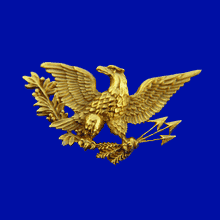Wednesday, December 7, 2011
National Popular Vote: An Alternate History
The Prolix Patriot has written in the past on the virtues of the Electoral College system, but the liberal campaign to institute a popular vote for presidential elections is in the news again. The National Popular Vote Interstate Compact is a proposal whereby participating states agree to give their electors to the winner of the popular vote, regardless of the votes cast for either candidate within the state. The compact will automatically go into effect if enough states join it to give the NPV states control of at least 270 electoral votes.
The election of 1960 was razor thin. Thanks to shenanigans in Chicago and other major Democratic strongholds in the Northeast, Kennedy won the popular vote by a margin of about 100,000 votes, but because of the Electoral College system enshrined in the Constitution by our founding fathers, Kennedy had a clear mandate of 303 electoral votes to Nixon's 219. Now, let's pretend the NPV had been in effect.
Polls in Nixon's home state of California close a full two to three hours after those in Chicago, Dallas, Philadelphia, New York, and Boston. As reports come in that Nixon is only down by a small margin (less than 0.25%), the Nixon campaign pushes organizers and supporters in California to get a few more voters out to the polls in Republican-leaning precincts to swing the national popular vote over to Nixon's favor.
When California finally begins tallying votes, voila, the final count comes in with Nixon ahead by 500 votes. Even though Kennedy should have a clear victory in the Electoral College, the NPV rules require Kennedy strongholds of Illinois, Massachusetts, New Jersey, and Maryland (all current NPV compact members) to give all their votes to Nixon. Given the slim margin, both the Kennedy and Nixon campaigns start requesting recounts and filing legal challenges, counter-suits, and injunctions in almost every state in the Union.
California, Texas, Illinois, and New York are simultaneously adjusting their vote tallies when it becomes clear that Kennedy may still win the popular vote. Nixon supporters in California react by launching a signature drive for a ballot initiative to leave the NPV interstate compact. Meanwhile, disgusted with the possibility that a Republican may take the election, Mississippi's unpledged electors announce they will give their votes to Kennedy.
Lawsuits galore are now headed to the Supreme Court, and then, as an added twist, Kennedy supporters and the press start a campaign to pressure Eisenhower's Supreme Court nominees to recuse themselves from any election-related cases, because Nixon served as an advisor to the Eisenhower administration's nomination and vetting process. By the time the dust has settled the decision on how to resolve the crisis is left in the hands of only four justices with a real possibility of deadlock.
As popular outrage builds with the escalating crisis, Eisenhower convenes all 50 governors at an emergency meeting in Dallas to consider the possibility of deploying the National Guard to maintain order. While traveling from the airport to his hotel, he is assassinated by a disgruntled Communist sympathizer named Lee Harvey Oswald. Nixon is sworn in as acting president while the results of his own election are still being litigated and tabulated. Massive riots and violence break out across the nation and Nixon declares "temporary emergency measures" in an attempt to bring the situation under control.
We are used to thinking of such a constitutional crisis as a preposterous and impossible scenario, but if the NPV ever goes into effect, this is exactly the sort of crisis that could happen in the very near future. In fact, the Heritage Foundation and the State Leadership Foundation hosted an event this morning with Senate Minority Leader Mitch McConnell which examined just these sorts of problems. As former Federal Election Commission Chairman Bradley Smith once observed, “We are so accustomed to stable, generally good government that we sometimes forget that failure of government structures is historically much more common than success.…[W]e tinker with our success at our peril.”
Subscribe to:
Post Comments (Atom)





No comments:
Post a Comment